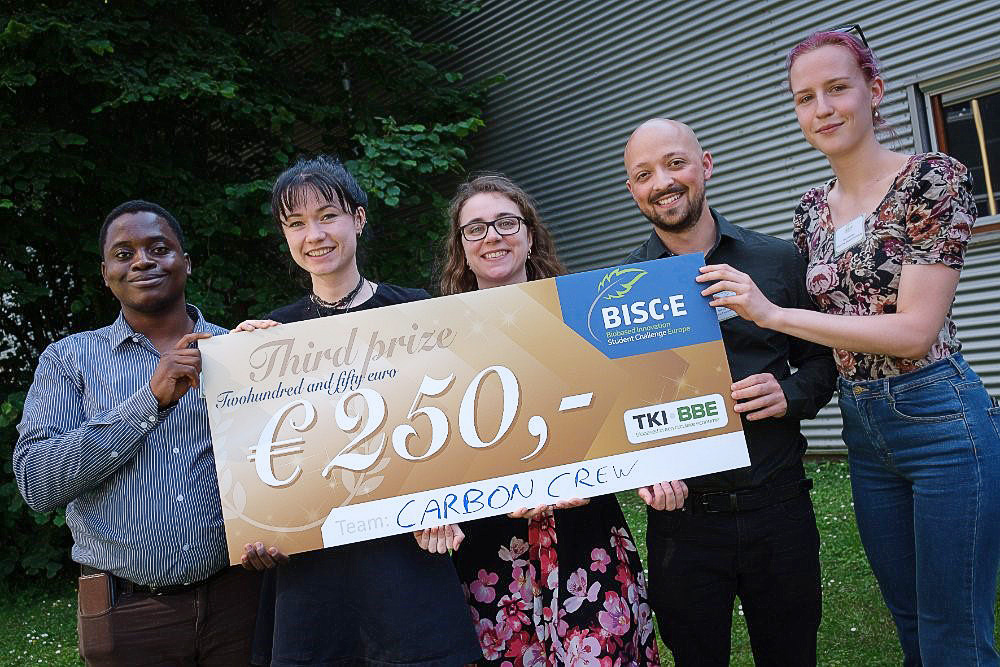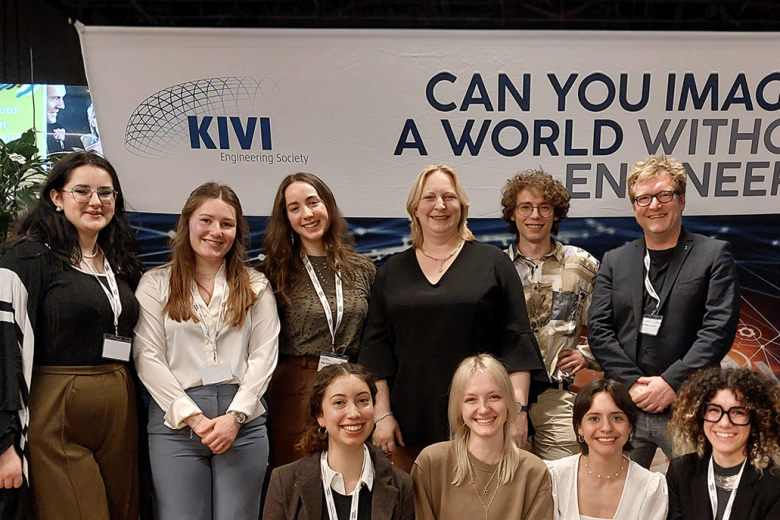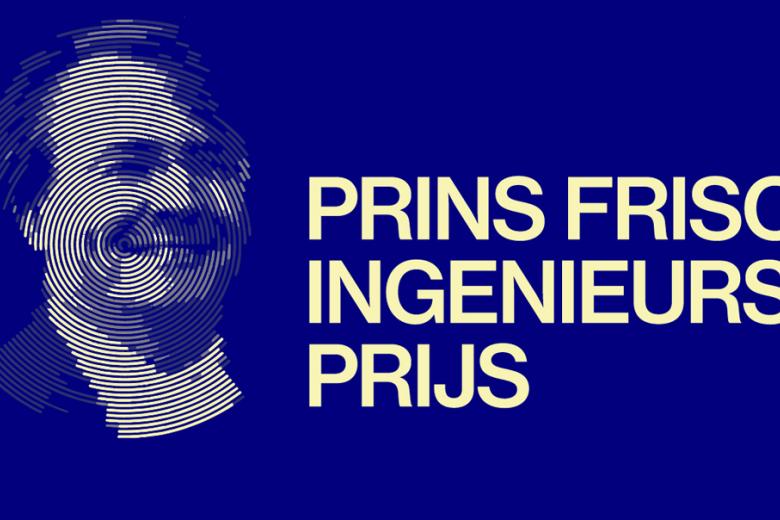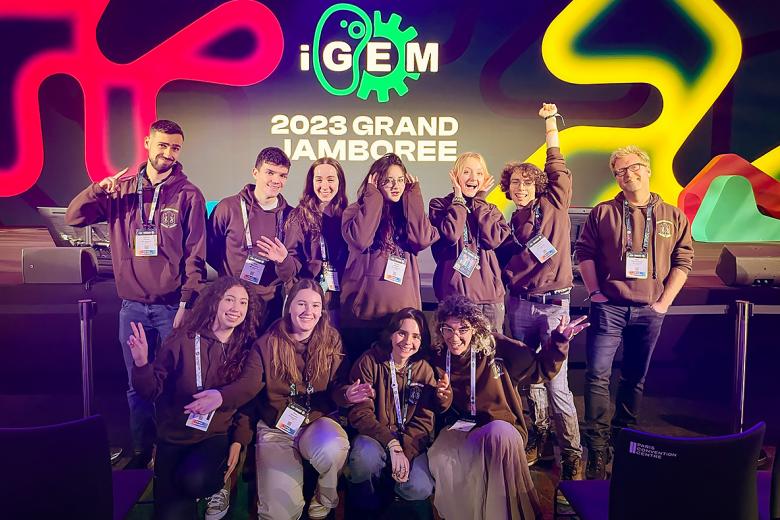From waste cooking oil to protective coating
Students of the Biobased Materials master’s programme took third prize in the Biobased Innovation Student Challenge Europe with their idea to convert waste cooking oil into vinyl ester resins.
‘Make the world a bit more sustainable by developing a biobased product of process.’ This was the outline of the Biobased Innovation Student Challenge Europe (BISC-E) in which 12 teams competed to come up with the best idea. Each concept was assessed on sustainability and technical and economic feasibility.

Benefits of waste cooking oil
A UM team called ‘Team Carbon Crew’ formed out of 5 Biobased Materials master’s students came up with the idea of biobased vinyl ester resins derived from waste cooking oils. This resin can be used in a variety of coating applications that are especially durable against external influences such as UV-damage or scratches. For instance, this coating would be very interesting for the automotive industry.
Less burden on the environment
The concept of producing ester resin from waste cooking oils has a very significant advantage. Because of the abundant and season/region-independent waste stream, there is no shortage of raw materials. This means less burden is put on the environment as would be the case with farming oil crops such as rapeseed and palm oil.
About the BISC-E
BISC-E is a yearly competition for bachelor’s and master’s students. The competition was created by TKI-BBE with the aim of bringing students into contact with the biobased work field. For more information: https://www.bisc-e.eu/
Also read
-
Prince Friso Engineering Award: UM wins both public prizes
Kim Ragaert and SublimeStone students won the public's awards given out during the Engineer of the Year contest. This triumph as well as the nomination of both, by the Royal Netherlands Society of Engineers, demonstrates that Maastricht University, particularly its only five-year-old Faculty of...

-
Champions of change: Vote Maastricht engineers to the top
The Royal Netherlands Society of Engineers has nominated engineer Kim Ragaert and student team SublimeStone for the award of best Dutch engineer and best Dutch student team in 2024. Both are among the last three finalists in their respective categories. Do you want the best engineers to win? Now is...

-
Maastricht University science students win gold at the international iGEM competition
How do you fix a crack in limestone, such as mergel? Well, simply ask some bacteria to do it for you. In short, this is the goal 11 students from Maastricht University set themselves to do. They succeeded and ended up in the TOP10 best undergraduate projects competing in the iGEM competition. For...
